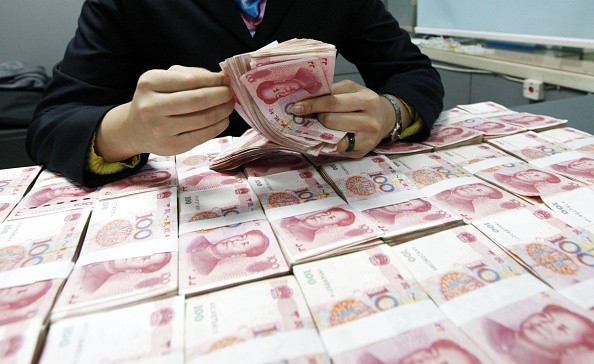China is pushing efforts to implement long-term measures to prop up the yuan, which includes promoting the Chinese currency's use in international trade and boost market liberalization, according to economists.
China Daily cited data from the Society for Worldwide Interbank Financial Telecommunication (SWIFT) which showed that yuan has maintained its position in the list of top-five currencies and was used in about 2.28 percent of global payments in November, an increase of 1.92 percent from the previous month.
The SWIFT data further revealed that the value of yuan payments made by 101 countries reached 12.9 percent as of October, which raised the currency to 2 percent, compared with the same period in 2014.
According to the report, the increased use of the yuan in international trade deals shows that rising confidence in the Chinese currency, following its including in the Special Drawing Rights basket of currencies by the International Monetary Fund on Oct. 1, a significant milestone in the yuan's internationalization.
However, concerns about the yuan's internationalization process were raised as the yuan continues to depreciate. In December, China's foreign exchange reserves fell to 3.01 trillion, according to data from the State Administration of Foreign Exchange.
In addition, the central bank also implemented a series of measures such as stricter control on individual foreign exchange purchases and outbound investment, after a surge in capital outflows. The measures were aimed at stabilizing the foreign currency exchange rate in the country.
Meanwhile, short-term measures may help address the risks in the local financial market as the country is yet to develop into a mature market, according to Zhao Qingming, an economist with China Financial Futures Exchange.
"But the market should not read too much into short-term policies," Zhao said. "There would be no turnaround when the central government puts the internationalization of the yuan high in its agenda."
A statement released after the Central Economic Work Conference in December said that China's top leaders have agreed to continue with efforts to pursue the yuan's internationalization process this year.
According to Zhao Xueqing, an economist with the International Research Institute of the Bank of China, the country is now moving towards liberalization of the yuan, as the currency will be used by neighboring countries to settle trade deals in the Silk Road Economic Belt and the 21st Century Maritime Silk Road.
The country will also need more infrastructure as well as regulatory frameworks and improve the management of its cross-border liquidity, Zhao added.
It should also make efforts in areas such as building regulatory frameworks and improving cross-border liquidity management, she added.



























